Search
Remove Ads
Advertisement
Summary 
Loading AI-generated summary based on World History Encyclopedia articles ...
Search Results
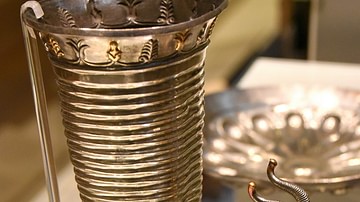
Definition
Ancient Persian Art and Architecture
Persian art and architecture in the present day is associated with the nation of Iran and usually designated as beginning with the Achaemenid Empire (c. 550-330 BCE) but has an even longer history with its origins dating back to before the...
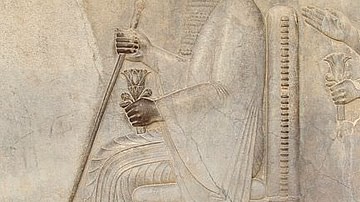
Article
Bureaucracy in the Achaemenid Empire: Learning from the Past
In the early days of the Achaemenid Empire (c. 550-330 BCE), the kings came to realise that, if they were to be able to administer the vast mass of land and the multicultural people who inhabited it, they had to create an organizational system...
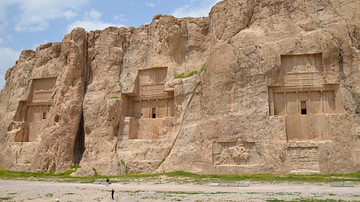
Article
Achaemenid Kings List & Commentary
The Achaemenid Empire (c. 550-330 BCE) was the first great Persian political entity in Western and Central Asia which stretched, at its peak, from Asia Minor to the Indus Valley and Mesopotamia through Egypt. It was founded by Cyrus II (the...
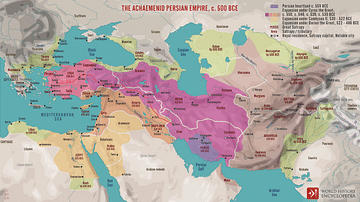
Definition
Achaemenid Empire
East of the Zagros Mountains, a high plateau stretches off towards India. While Egypt was rising up against the Hyksos, a wave of pastoral tribes from north of the Caspian Sea was drifting down into this area and across into India. By the...
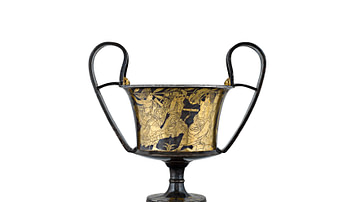
Article
Foreign Influences & Imported Luxuries in Thrace
Defining Thracian art is a difficult task due to the fact that what we call today Thrace was never a single unified state but, rather, a collection of many independent communities (or tribes) who formed both alliances and rivalries with each...
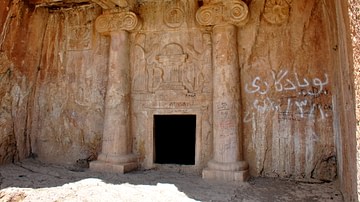
Article
The Rock-Cut Tombs of Qizqapan, Iraqi Kurdistan: Median or Achaemenid?
O Creator of the material world, at what distance from the holy man (should the place for the dead body be)?" Ahura Mazda replied: "Three paces from the holy man". (Vend. 8. 6-7) In September 2009 CE, one of my relatives suggested that we...
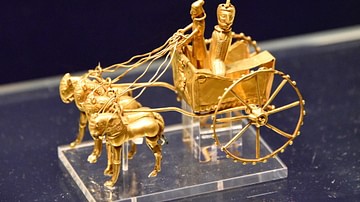
Definition
Oxus Treasure
The Oxus Treasure is a collection of 180 artifacts of precious metal, dated to the Achaemenid Empire (c. 550-330 BCE), which were discovered on the north bank of the Oxus River near the town of Takht-i Sangin in Tajikstan between 1876-1880...
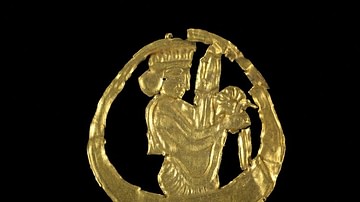
Article
Women in Ancient Persia
Women in ancient Persia were not only highly respected but, in many cases, considered the equals of males. Women could own land, conduct business, received equal pay, could travel freely on their own, and in the case of royal women, hold...
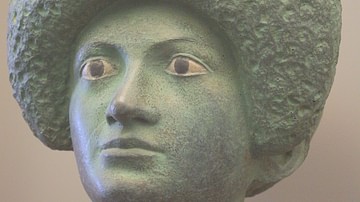
Definition
Roman Art
The Romans controlled such a vast empire for so long a period that a summary of the art produced in that time can only be a brief and selective one. Perhaps, though, the greatest points of distinction for Roman art are its very diversity...
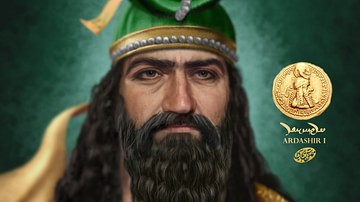
Definition
Ardashir I
Ardashir I (l. c. 180-241 CE, r. 224-240 CE) was the founder of the Persian Sassanian Empire (224-651 CE) and father of the great Sassanian king Shapur I (r. 240-270 CE). He is also known as Ardashir I Babakan, Ardeshir I, Ardashir the Unifier...